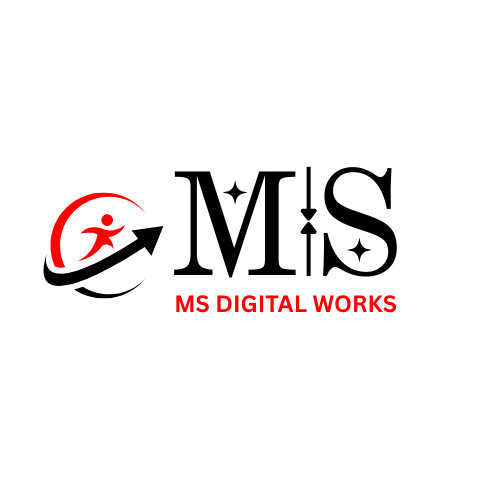Marketing today looks nothing like it did a decade ago. The rise of social media, mobile-first consumer behavior, and constant connectivity has created an environment where brands are expected to be everywhere, all the time. To meet these expectations, modern marketers need more than traditional tools—they need intelligence.
Artificial Intelligence (AI) has emerged as the secret weapon, giving marketers the power to automate repetitive tasks, personalize customer experiences at scale, and convert more effectively than ever before. Think of it as your playbook: a set of strategies powered by AI to help you stay competitive, agile, and growth-driven.
In this blog, we’ll break down The AI Playbook for Modern Marketers into three winning chapters: Automate, Personalize, Convert.

Automate – Free Up Time for Strategy
One of AI’s greatest strengths lies in automation. Marketing teams often get bogged down by repetitive tasks—sending emails, posting on social media, generating reports, and segmenting audiences. While these activities are necessary, they consume valuable time that could otherwise be spent on strategy and creativity.
What You Can Automate with AI
Email Campaigns: AI-powered platforms like Mailchimp or HubSpot can automate sends, adjust timing based on engagement, and even optimize subject lines.
Social Media Posting: Tools such as Buffer or Hootsuite use AI to schedule posts at peak engagement times and curate trending content.
Ad Campaign Management: Platforms like Google Ads and Meta Ads now rely on AI for bidding optimization, targeting, and budget allocation.
Analytics & Reporting: Instead of manually digging through dashboards, AI can generate insights and highlight anomalies instantly.
Why It Matters
By automating the mechanical aspects of marketing, teams can shift focus from “doing the work” to strategic decision-making. This means more time for creative storytelling, customer research, and high-impact campaigns.
Think of automation as the engine that keeps your marketing running efficiently, so you can focus on steering the car toward bigger opportunities.
Chapter 2: Personalize – Speak to the Individual, Not the Masses
Today’s customers don’t just want personalized experiences—they expect them. In fact, research shows that 80% of consumers are more likely to buy from brands that offer personalized interactions. But personalization goes beyond using someone’s first name in an email. With AI, marketers can deliver truly relevant experiences that resonate on an individual level.
How AI Enables Personalization
Predictive Recommendations: AI can analyze browsing and purchase history to recommend products customers are most likely to buy—just like Amazon or Netflix.
Dynamic Website Experiences: Tools like Optimizely and Adobe Target allow websites to adapt in real-time based on visitor behavior.
Smart Email Segmentation: AI can divide audiences into micro-segments, ensuring each user receives tailored offers.
Chatbots & Conversational AI: From answering questions instantly to guiding users through the buyer journey, AI chatbots create personalized, real-time interactions.
Case in Point
Spotify’s Discover Weekly playlist is an excellent example of AI-driven personalization. By analyzing listening habits, Spotify curates a playlist unique to each user every Monday. The result? Users feel understood and stay loyal to the platform.
Why It Matters
When personalization is done right, it feels less like marketing and more like a service. AI allows brands to scale this personal touch across millions of customers—something humans simply can’t do alone.
Personalization isn’t just about increasing conversions; it’s about building lasting relationships where customers feel valued.
Chapter 3: Convert – Turn Attention into Action
Automation keeps you efficient, personalization keeps you relevant—but conversion is where the magic happens. AI doesn’t just bring people to your digital doorstep; it helps close the deal.
AI-Powered Conversion Tactics
Predictive Lead Scoring: AI models can analyze past interactions and assign scores to leads based on likelihood to convert. This ensures sales teams spend their time on the right prospects.
A/B Testing at Scale: Traditional A/B testing is limited to two or three variations. AI tools can run multivariate tests and instantly adapt campaigns to what works best.
Behavioral Triggers: AI can detect intent signals, like cart abandonment or prolonged browsing, and trigger timely nudges (discount pop-ups, reminder emails, etc.).
Conversational AI for Sales: Intelligent assistants can guide users through product demos, FAQs, and even handle transactions directly in chat.
Example in Action
E-commerce brands often use AI to combat cart abandonment, one of the biggest conversion killers. Instead of sending a generic reminder email, AI can personalize the follow-up: showing the exact product left behind, offering a discount if the customer hesitated on price, or suggesting alternatives if stock runs low.
Why It Matters
AI takes the guesswork out of conversion. By predicting what a customer needs and when they need it, AI bridges the gap between interest and purchase. The result: higher conversion rates, reduced churn, and increased lifetime value.
The Future of AI in Marketing
We’re only scratching the surface of what AI can do. Emerging trends point to even greater possibilities:
Generative AI Content: From writing blog drafts to generating ad creatives, AI tools like ChatGPT and Jasper are streamlining content creation.
Voice & Visual Search: With smart speakers and visual recognition on the rise, optimizing for voice and image-based search will become crucial.
Hyper-Personalization with Real-Time Data: Instead of reacting to customer behavior, AI will proactively predict needs before they’re expressed.
Marketers who embrace these tools today will not only gain a competitive advantage but also future-proof their strategies in a rapidly evolving digital landscape.
The Takeaway: Build Your AI Playbook
AI isn’t here to replace marketers—it’s here to empower them. The smartest brands will use AI to:
Automate repetitive tasks and free up bandwidth.
Personalize experiences to foster deeper customer connections.
Convert prospects with precision and relevance.
Think of AI as your co-pilot: handling the heavy lifting behind the scenes, while you, the marketer, focus on creativity, empathy, and strategy.
The modern marketing playbook is clear—Automate. Personalize. Convert. Those who master this will not just keep up with the competition; they’ll set the pace.
